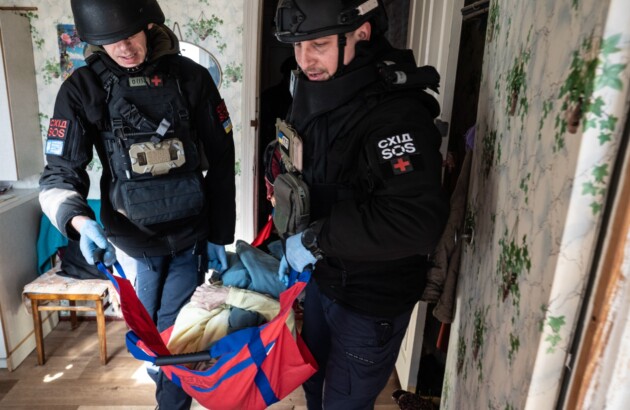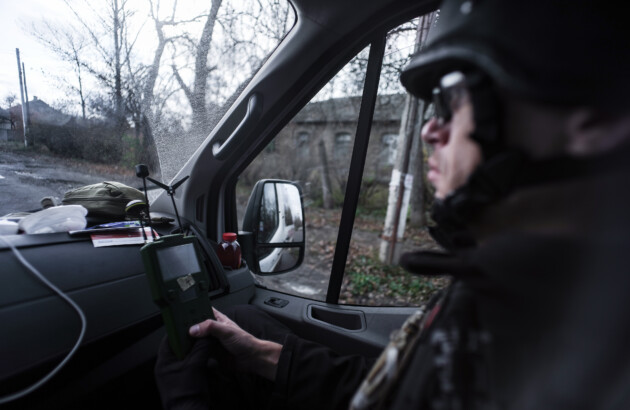The conflict is not frozen: сonclusions and recommendations
From July 24 to 29, 2020, the German NGO DRA and the Charitable Foundation Vostok SOS, with the support of the Federal Foreign Office of Germany have conducted another international monitoring mission in eastern Ukraine. The participants of the eighth monitoring mission visited the areas directly affected by warfare, as well as the settlements located directly on the line of contact.
The mission’s task was to study the security and socio-economic situation in the zone of the armed conflict, paying particular attention to the following issues: shelling of settlements before and shortly after the declaration of the full and comprehensive ceasefire on July 27, 2020; the consequences of the Covid-19 pandemic; the issues connected to the crossing of the demarcation line; implementation of the decentralization reform in the region affected by the military conflict.
Conclusions and recommendations
1. The preservation of the MCA institution is justified until the complete elimination of the threat of resumption of hostilities in the zone of armed conflict. In 2014-2015, most local governments had demonstrated an inability to meet the basic needs of local communities in the context of intense hostilities, which led to an increase in the number of victims in the civilian population in areas where the military conflict is going on. Some factors indicate that the risk of full-scale hostilities renewal in the Luhansk oblast and the Donetsk oblasts persists. And in this case, military-civilian administrations will be a much more effective tool for the livelihood of communities than local self-government.
At the same time, the institution of military-civil administrations needs to be reformed.
At the time of adopting the MCA law in 2015, legislators did not take into account that hostilities would continue for so long and that the operation period of “temporary” MCA could take years. Perhaps that is why MCAs in their current form are useful in times of crisis but not effective for sustainable development. It is to address these challenges, based on the likelihood of continuing military-civilian administrations operation terms, that the legislators should provide new legal tools for the participation of local community representatives in making essential community decisions. The current effective Law, unfortunately, does not provide mechanisms for public control over these administrations and also establishes a very non-transparent procedure for their formation.
Thus, to increase the effectiveness of the MCA, the legislators should provide, first, mechanisms for influencing local communities to choose the head and key employees of military-civil administrations, to assess the competencies and integrity of applicants, to participate in decision-making in the local community. Second, the Government should quickly develop and implement retraining programs for the heads and key staff of the MCA, who often have no administrative experience.
2. Economic revival of the region will not be possible without creating conditions for attracting investment. The experience of the last six years convinces us that it is almost impossible to attract investment to the region, engaged in war, without creating a particular environment. The Ukraine Government needs to propose a balanced policy to compensate for the risks associated with hostilities for potential domestic and international investors. Such steps could be creating a Free Economic Zone or other models to reduce the tax burden for those businesses that are willing to risk investing their capital in a war-torn region. At the same time, it is essential to provide mechanisms that will create equal conditions for all bona fide market participants and will avoid making artificial preferences for monopolies fused with the state power.
3. The Russian Federation is using the “Minsk process” to exert political pressure on Ukraine and distract the world community from the root cause of the conflict, its hybrid aggression in eastern Ukraine and the AR Crimea. Therefore, security policy in the conflict region should not completely repeat the agenda imposed by the Russian government. Without abandoning attempts to establish peace and individual actions to implement this strategy, the Ukrainian government should not give Russia a strategic initiative, should not weaken the position of the Joint Forces Operation in the Luhansk oblast and the Donetsk oblast, and should not ignore the facts of violation of peace agreements by illegal armed groups, controlled by the Russian Federation.
Recognizing that the current political management of the Russian Federation intends to continue to use the threat of intensification of hostilities in the Donbas to exert political pressure on Ukraine, and the plight of Separate Districts of the Donetsk and Luhansk regions (ORDLO) residents to pressure the Ukrainian government through international partners, Ukrainian authorities should use all available diplomatic tools to strengthening the political and economic isolation of the Russian Federation and preparing for a possible escalation of the conflict by the aggressor, strengthening its defense potential.
4. At the same time, the Government of Ukraine should pay attention to the situation of civilians affected by the conflict. Ukraine should develop and implement a logical and coherent policy to improve all aspects of the humanitarian situation, especially in government-controlled areas. Still, efforts to improve should be directed, as far as possible, to the inhabitants of territories controlled by illegal armed groups who subject to the Russian Federation.
5. Given the difficulties encountered in crossing the line of contact during the Covid-19 pandemic, it may be useful for the Ukrainian government to study best practices for respect for human dignity and the rights of citizens in other areas of frozen conflict. The situation with the so-called “DPR” and “LPR” has much in common with the situation in Abkhazia and the Tskhinvali region in Georgia, in Transnistria in Moldova, as well as in the enclave areas of the Fergana Valley, despite the differences in terms of the scale of the conflict. Over the past two decades, both Moldova and Georgia have gone through several stages of armed conflict – from open warfare to ending and freezing the conflict – and, like Ukraine, have faced challenges in guaranteeing human rights for the citizens living both sides of the conflict zone. For their part, the Georgian and Moldovan authorities could undoubtedly benefit from the experience of the Ukrainian government.
Read PDF in English.


